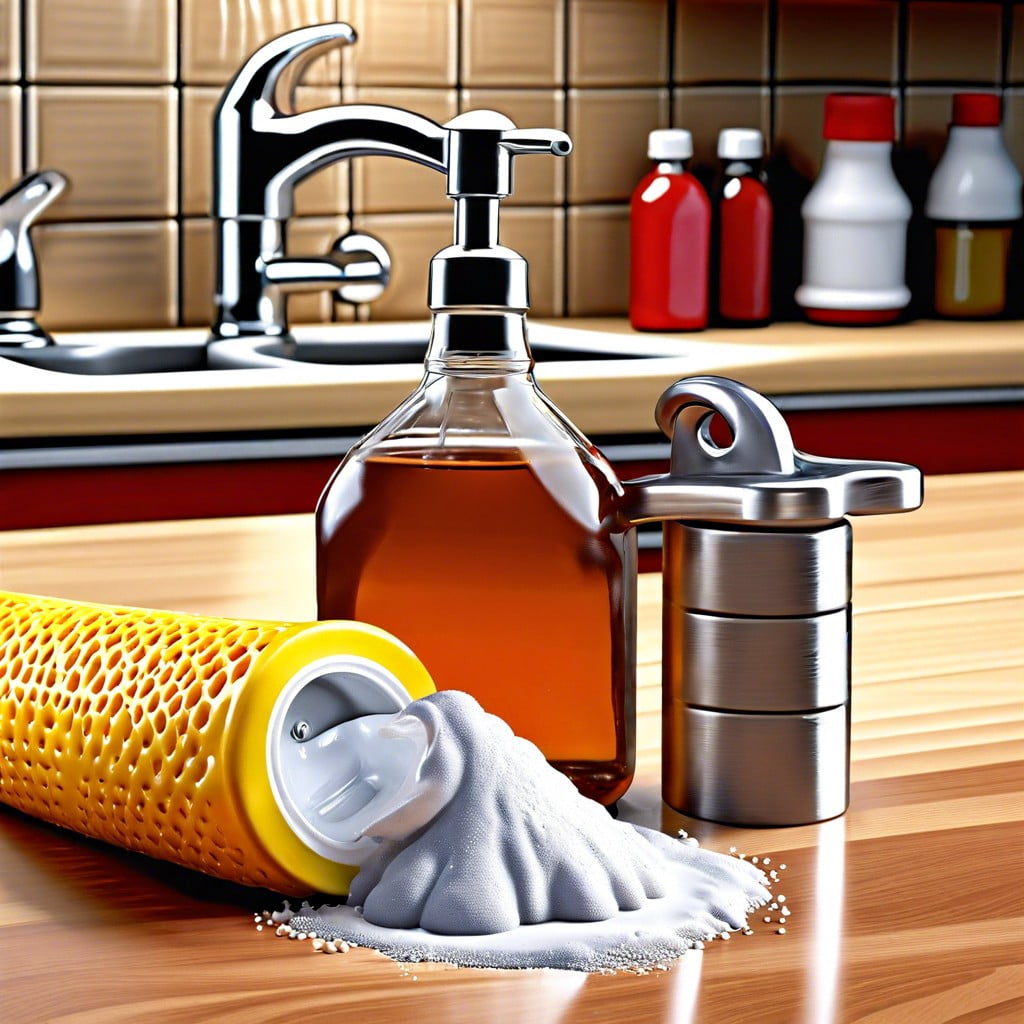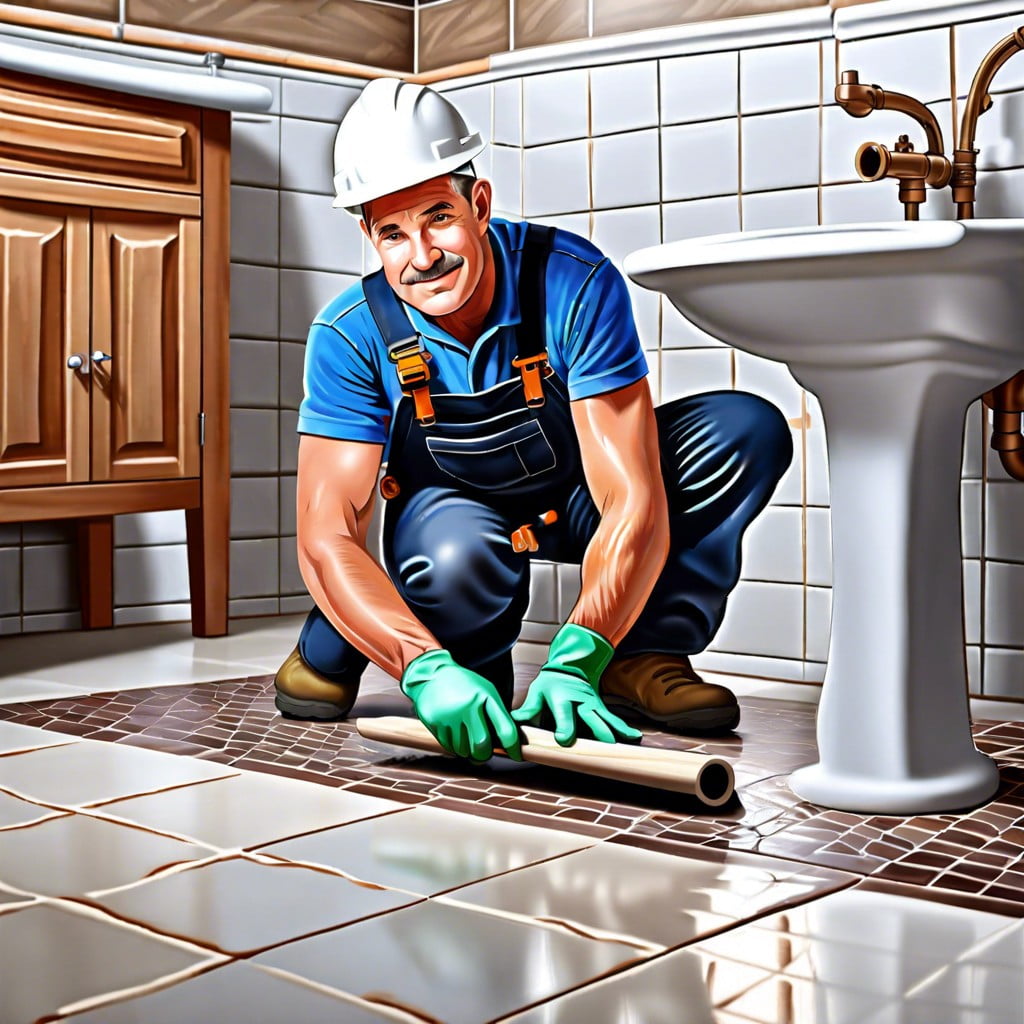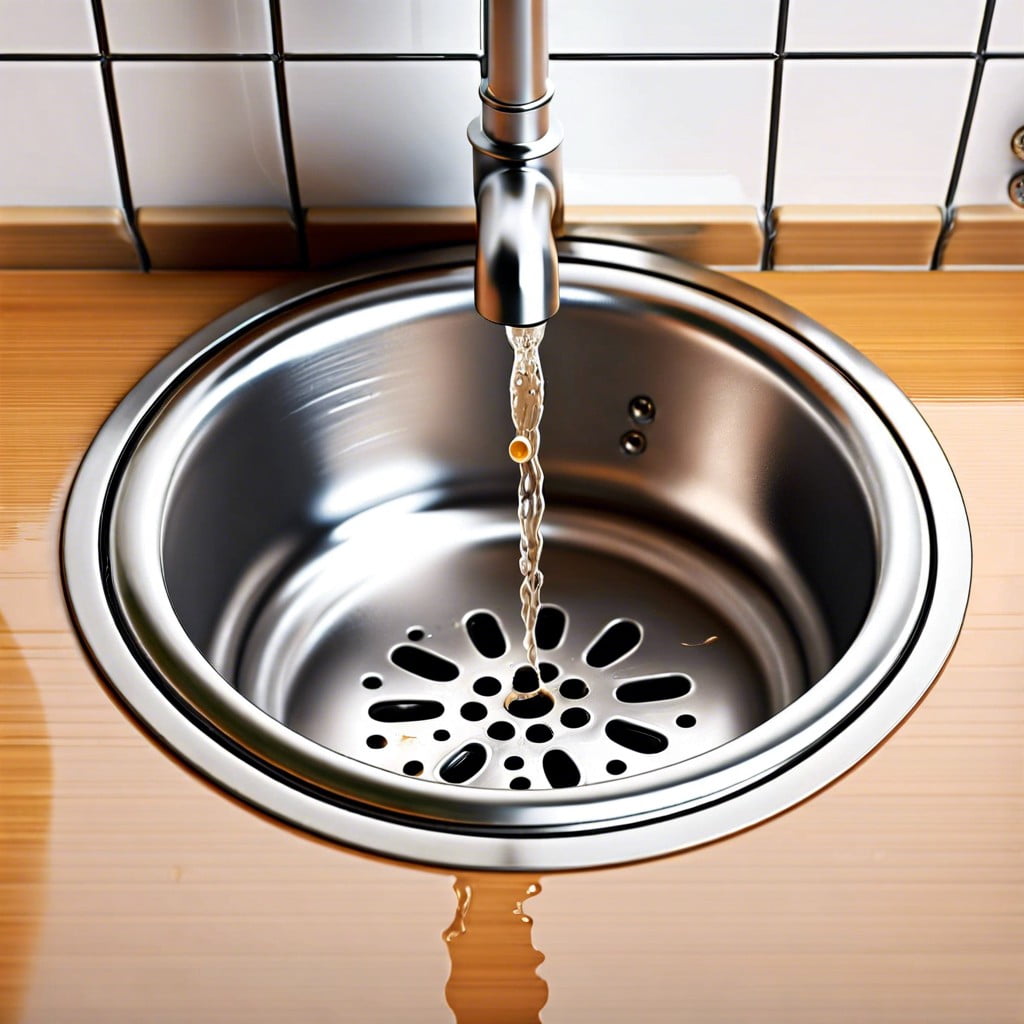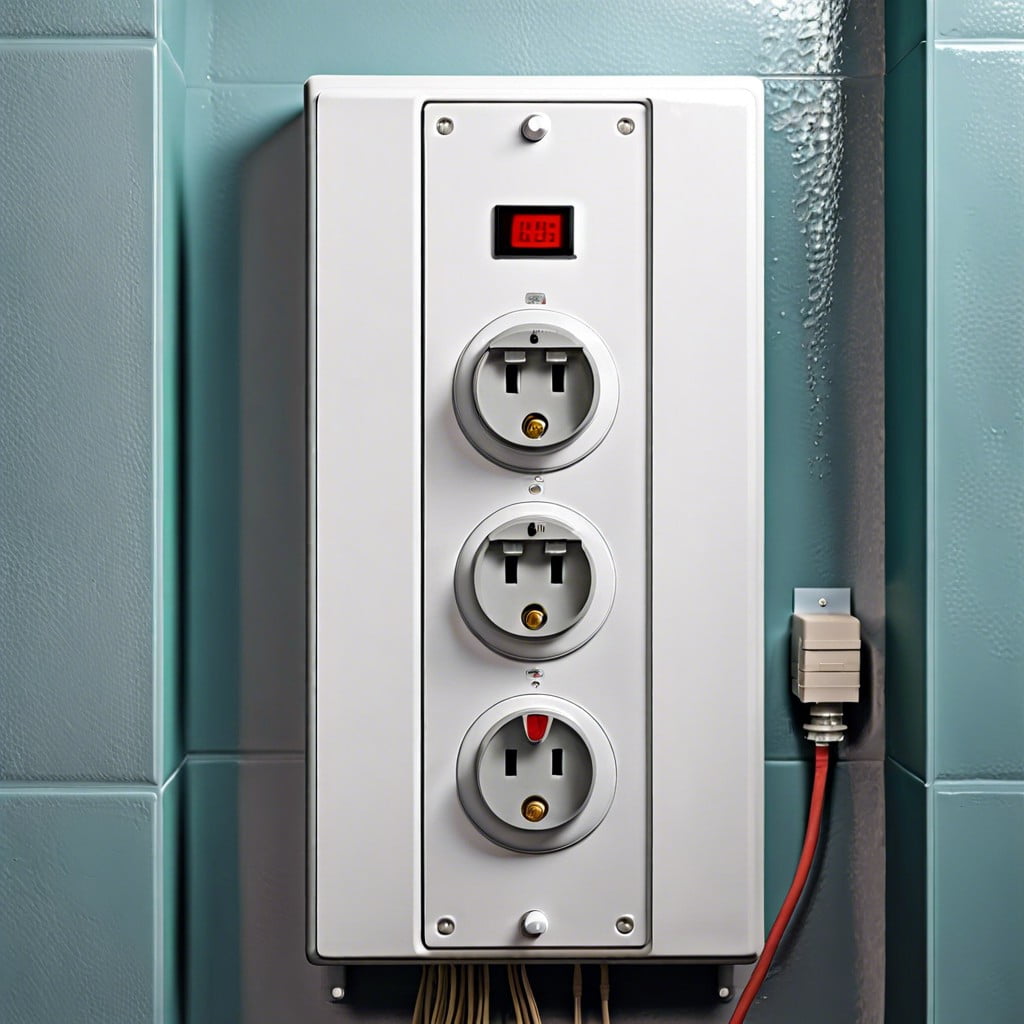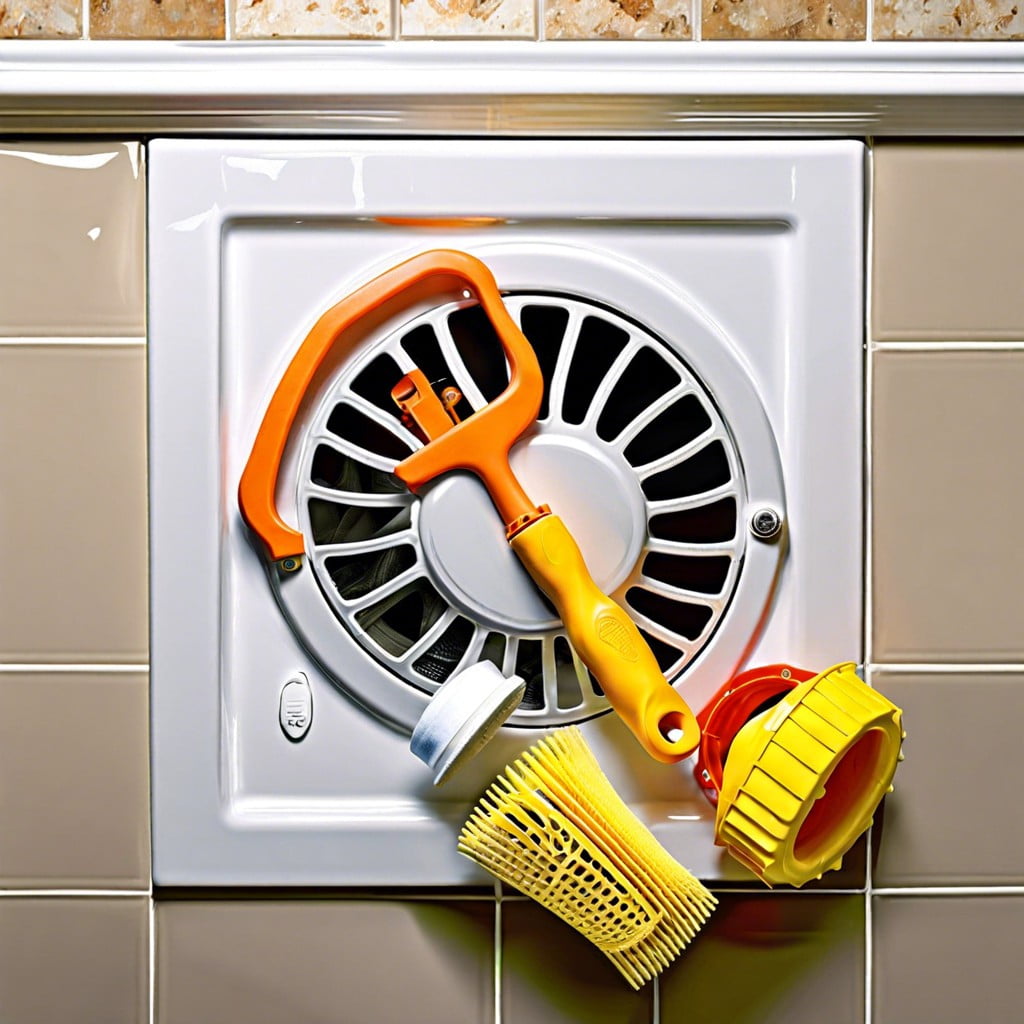Last updated on
Learn practical strategies for eliminating ants in your bathroom that are both effective and easy to implement.
Key takeaways:
- Understanding why ants are in your bathroom: water and sustenance.
- Locate ant entry points and seal them to deter ants.
- Eliminate food and water sources to discourage ant gatherings.
- Use natural repellents like vinegar, cinnamon, and lemon juice.
- Consider professional pest control for effective, long-term solutions.
Understanding Why There Are Ants in Your Bathroom
Ants are in pursuit of two primary resources: water and sustenance. Your bathroom unwittingly offers both.
The humidity from showers and leaks creates an ideal watering hole for these insects, while stray hairs, dead skin, and residue from spills serve as unintentional snacks.
Understanding the ant’s basic needs is crucial because it informs the strategy for making your bathroom less inviting.
Commit to regular maintenance by fixing leaks and ensuring complete dryness where possible.
Routinely clear away anything that could be seen as food for an ant.
In doing so, the reasoning behind an ant invasion becomes clear, and you are better equipped to cut off their supply and repel them effectively.
Locating Ant Entry Points
Ants are opportunistic and will slip through the smallest of gaps. Start by scrutinizing the areas around windows, doors, and bathroom fixtures—these are common access routes. A thorough inspection may reveal that ants are coming through cracks in the walls or floors, or even hitching a ride on towels and clothing from other areas of the house.
Sealing these entry points is crucial. For less obvious gaps, a thin layer of talcum powder can act as a detective tool, revealing ant trails and helping you pinpoint their source. Once located, caulk or seal these breaches with appropriate materials. Keep in mind that eliminating entry points not only deters ants but also reinforces your bathroom’s defenses against a variety of other pests.
Eliminating Food and Water Sources
Ants, uninvited guests in our bathrooms, are often there for one thing: resources. To discourage their gatherings, cutting off their supply chain is a must.
Begin by wiping down surfaces to remove residue from spills or splashes. Don’t overlook the importance of maintaining a dry environment; promptly fix leaks and consider using a dehumidifier to thwart the appeal of excess moisture.
Lasty, ensure all personal care items are sealed—ants can find the smallest dollop of lotion or shampoo enthralling. By taking away their access to sustenance, you’re effectively hanging a “closed for business” sign on your bathroom door.
Using Natural and Chemical Ant Repellents
Natural repellents can be surprisingly effective and are often preferred for their minimal environmental impact. Common options include vinegar, cinnamon, lemon juice, or peppermint oil. A simple solution of vinegar and water can act as a cleaning agent that also deters ants due to its strong scent. A line of cinnamon or lemon juice near entry points can act as a barrier that ants typically won’t cross.
For those looking for a more potent solution, a variety of chemical ant repellents are available. Baits and gels that contain borax not only kill the ants that consume them but also allow those ants to bring the poison back to the nest. Sprays with pyrethroids, a synthetic chemical akin to naturally-occurring pyrethrins in chrysanthemum flowers, can offer a quick knockdown solution for ants in the bathroom.
However, when opting for chemical solutions, caution is key. Always read labels for proper application and safety to avoid harm to pets or children. Remember, the most effective method depends on the specific species of ant and the scale of the infestation—a professional assessment may be needed for accurate identification and treatment.
Professional Pest Control
Engaging a professional pest control service can be a game-changer. These experts come armed with knowledge and tools that can outmatch any DIY technique.
They’ll perform a thorough inspection of your bathroom and home to identify the species of ants, which is critical since different ants may require different treatments. Moreover, they utilize industrial-strength products that are often more effective and longer-lasting than over-the-counter solutions.
Safety is another aspect where professionals shine. They understand the risks associated with chemical treatments and are trained to apply them without endangering you or your family. Moreover, they can enact preventative measures, ensuring the ants don’t return for a curtain call.
Getting the experts in may seem like an investment, but it’s about weighing the cost against the value of a long-term, guaranteed fix. It’s a relief to know that your ant problem is not just resolved for now, but that there are systems in place to ward off future invasions.
Recap
